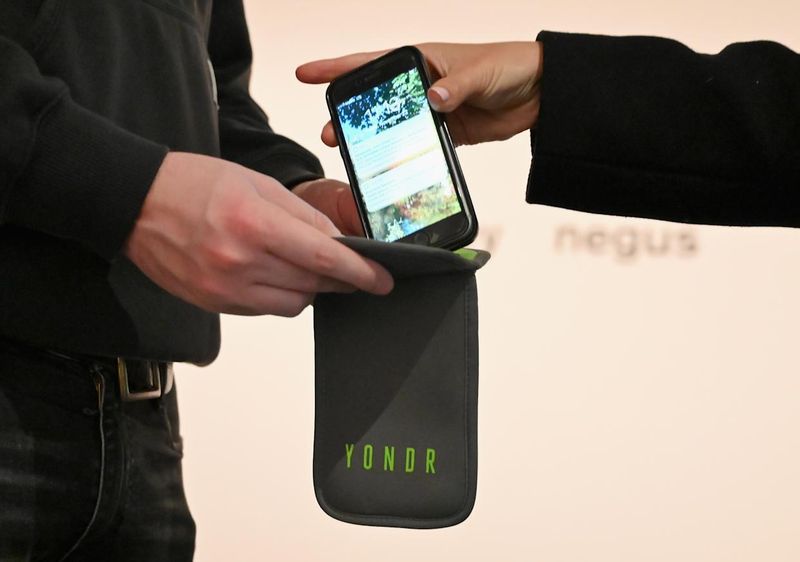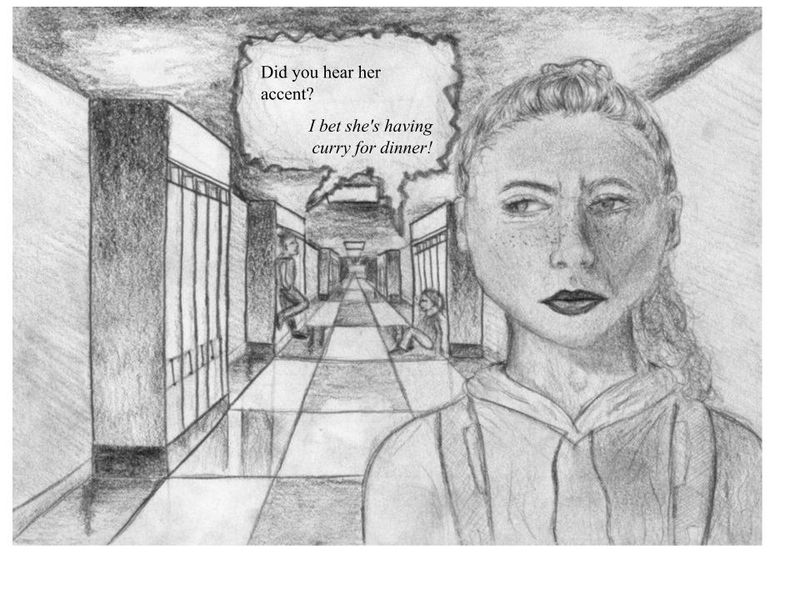Your Parents Raised You Right If You Think These 17 Common Habits Are Actually Disrespectful
Some of us grew up believing you never showed up to someone’s house without a little something in hand, and that handwritten thank-you notes were non-negotiable.
Every time I see someone breeze past these old-school habits, it’s like a tiny alarm goes off in my brain—a soft echo of my mom’s dead-serious voice. There’s just something about witnessing everyday rudeness that makes you want to clutch your pearls, or at least send a strongly worded group text.
Don’t get me wrong, I’m not out here ready to revoke anyone’s fun. But having basic courtesy? Still the vibe. So if you catch yourself rolling your eyes at so-called “modern manners,” you’re in the right place.
Let’s talk about the everyday stuff that isn’t just a pet peeve—it’s a line in the sand, drawn by the people who raised you right. Here’s my list—no filter, all heart.
1. Interrupting Someone Mid-Sentence Just to Talk Louder

Ever had someone jump right in, steamrolling your story because their words just can’t wait? That’s a special kind of nerve! It’s less about getting a point across and more about sending the message that your words are just background noise.
I grew up learning to let people finish their thought, no matter how long-winded they were being. That moment of quiet in a conversation can feel awkward, but it shows you care about the other person’s voice.
The truth is, cutting people off doesn’t speed things up or make you look smarter—it does the opposite. Next time you’re tempted to talk over someone, remember: being a good listener is way more memorable than having the last word.
2. Talking Down to Service Workers

You can spot the ones who never worked a retail shift from a mile away—they’re the ones snapping at the barista or treating the cashier like a robot. It’s a big red flag, honestly. The world would be a better place if everyone bagged groceries for a summer.
A quick ‘please’ or a real smile can turn a bad day around for someone, and if you were raised right, you know it’s never OK to talk down to anyone. Kindness to service workers is basic human decency.
The people making your latte or ringing up your avocados are not beneath you—they’re just trying to get through their day. If you’re polite to the CEO but rude to the staff, you’re missing the whole point of respect.
3. Showing Up Late Without Apologizing (or Texting)

That friend who waltzes in twenty minutes late without so much as a “sorry”—do they realize how obvious it is? It’s like they think the world pauses for their arrival. Being on time is just another way to say, “Hey, you matter to me.”
My mom drilled into me that being late is being disrespectful, plain and simple. It’s not quirky or mysterious, it’s just rude (unless there’s a real emergency, obviously).
A quick heads-up text if you’re running behind? Not hard. When you respect other people’s time, you show them they’re worth it. Consistent tardiness doesn’t make anyone look busy or important—it just makes them look careless.
4. Putting Your Phone on the Table During Meals

Let’s talk about the uninvited guest at every meal: the phone. Nothing says “I’m only half here” like a screen lighting up every five seconds. It’s wild how something so small can make people feel so undervalued.
Growing up, phones at the table were literally unthinkable. My mom’s glare could melt plastic if she saw an iPhone next to the mashed potatoes.
Sharing a meal is about connection, not notifications. Unless you’re waiting on a life-or-death call, give the people you’re with your attention. Real eye contact beats screen contact every time, and honestly, your group chat will survive an hour without you.
5. Snooping Through Someone’s Stuff (Including Their Phone)

Ever caught someone scrolling through your texts or rifling through your bag? It’s the fastest way to lose trust. My family always said, “If it’s not yours, you ask”—and that goes double for phones and diaries.
The urge to snoop can be strong, but curiosity is never a free pass for invading privacy. Boundaries keep friendships healthy and drama-free.
You’d be surprised how many friendships implode over a ‘harmless’ peek at someone else’s stuff. Trust isn’t just given—it’s built, one respectful choice at a time.
6. Talking About Someone’s Body—Even as a “Compliment”

It’s wild how people still think commenting on someone’s weight, skin, or age is a compliment. If you wouldn’t want it said about you, why say it at all? Even the most well-meaning remarks can sting or stick around longer than you think.
I was always taught to keep my thoughts about people’s bodies to myself. Honestly, compliments don’t need to be about looks—try praising someone’s style, humor, or kindness instead.
Bodies are personal, and even a casual comment can bring up a lot for someone. Kind words don’t need to come with conditions or backhanded praise. Simple as that.
7. Blasting Music or Videos on Speaker in Public

Why do people treat public spaces like their personal concert? The rest of us didn’t sign up for your playlist. Headphones exist for a reason, and anyone who ignores that is just asking for side-eyes.
There’s a certain boldness to blasting music or videos on speaker, like the rules don’t apply. My mom would’ve snatched that phone so fast.
It’s about sharing space without forcing your vibe on everyone else. Being considerate doesn’t take much effort, but it makes a huge difference for everyone’s sanity.
8. Cancelling Plans Last Minute… Repeatedly

When a friend cancels on you for the third time in a month, it’s hard not to wonder if you’re just a backup plan. Flakiness isn’t cute or mysterious—it’s a clear message about priorities. Life is busy, but chronic last-minute bailouts are something else.
Il mio parents always said, “If you make a promise, you keep it.” That goes for brunch plans, too. Apologizing is great, but consistency is better.
Everyone has emergencies, but habitual cancelers start to feel less like friends and more like unreliable acquaintances. It’s about respect—showing up, even when it’s inconvenient.
9. Gossiping About People You Call Friends

There’s friendly venting, and then there’s talking trash about your own crew. If you’re spilling secrets or tearing down friends behind their backs, that’s not friendship—that’s just creating drama.
Nothing travels faster than a juicy story shared in confidence. My mom always said, “If they talk about her to you, they’ll talk about you to her.” Fair warning.
Gossip feels harmless until it isn’t. True friends support and protect each other, even when it’s tempting to grab the popcorn. Save the story-sharing for group chats with actual trust.
10. Refusing to Say ‘Please’ and ‘Thank You’ Because ‘It’s Just Expected’

Nothing feels more awkward than handing someone a coffee and getting silence in return. Politeness isn’t old-fashioned—it’s how you show other people they matter. The smallest “please” or “thank you” makes a world of difference.
Growing up, forgetting your manners wasn’t even an option. You said thank you, and you meant it, even if it was just for passing the salt.
Those tiny words are like social glue—they keep everything running smoother. When you stop using them because “everyone knows what I mean,” you’re missing the point. Gratitude isn’t optional, it’s essential.
11. Using Someone’s Things Without Asking

Borrowing a sweater or phone charger without asking? It might seem harmless, but for some of us, it’s peak disrespect. It’s about trust—when you use someone’s things without permission, you’re crossing a line.
Growing up, you didn’t touch what wasn’t yours. Even now, I still ask before grabbing my best friend’s hoodie, just out of habit.
It’s not just about stuff—it’s about showing you value the people around you. Respect starts with little choices, like asking before borrowing (or eating) the last cookie.
12. Giving Unsolicited Advice Like It’s a Gift

There’s a fine line between being helpful and being the queen of “Well, you know what you should do, right?” Sometimes people just want a supportive friend, not a personal life coach. Giving advice without being asked can make others feel judged or misunderstood.
My mom taught me that listening is more powerful than fixing. Empathy is underrated—sometimes a hug helps more than a list of solutions.
If you feel the need to chime in, try pausing and asking if your friend actually wants advice. Respect for someone’s choices often means letting them figure things out on their own.
13. Leaving a Mess in Shared Spaces

Living with other people means sharing space—and responsibility. There’s nothing more annoying than cleaning up someone else’s mess for the hundredth time. A tidy home isn’t about being fancy; it’s about respect for the people you live with.
Growing up, “clean as you go” was the golden rule. You wouldn’t leave your plate on the table at a friend’s house, so why do it at home?
Leaving a mess sends the message that someone else’s time and effort don’t matter. Doing your part keeps the peace and makes coming home feel good for everyone.
14. Mocking Someone’s Beliefs, Accent, or Background

“Just joking!” doesn’t make it hurt less. Mocking someone’s background, accent, or beliefs isn’t edgy—it’s just mean. The world’s big enough for all kinds of people, and respect means letting them be themselves.
I grew up in a family where differences were celebrated, not ridiculed. A little kindness can go a long way, especially in mixed company.
Remember: it’s never funny to make someone the punchline. If you can’t laugh together, you’re probably doing it wrong. Choose respect, even when others don’t.
15. Making a Scene to ‘Prove a Point’

We all know someone who gets loud when they want to be right. But making a scene rarely wins arguments—it just leaves everyone mortified. Standing up for yourself is great; making everyone else squirm isn’t.
I learned that calm confidence goes further than volume. You can hold your ground without turning dinner into a reality show.
Next time you’re tempted to shout to prove a point, remember: people remember how you made them feel, not how loudly you said it. Quiet strength? Underrated.
16. Bragging About Not Caring What Anyone Thinks—Then Being Shocked When No One Wants to Be Around You

There’s a difference between confidence and acting like everyone else’s feelings are irrelevant. The “I don’t care what anyone thinks” attitude gets lonely fast. Being unapologetic is one thing, but disrespect isn’t a personality trait.
My mom always reminded me, “You don’t have to be liked, but you should be decent.” Self-awareness is actually pretty attractive.
If people avoid you because you treat their feelings like a joke, that’s not empowerment—that’s isolation. Sometimes, caring a little is exactly what keeps relationships strong.
17. Ignoring Elders, Kids, or Anyone Who Can’t ‘Do Something’ for You

You can always tell what someone’s about by how they treat people who can’t offer them anything. Elders, kids, and strangers deserve respect, too. Kindness isn’t reserved for bosses or friends—it’s about humanity.
My parents were big on saying hello to neighbors and looking out for the little ones or anyone who needed a hand. Those tiny gestures say everything.
Ignoring people because they’re not “useful” reveals more about your character than your resume ever will. Compassion should never be conditional.







